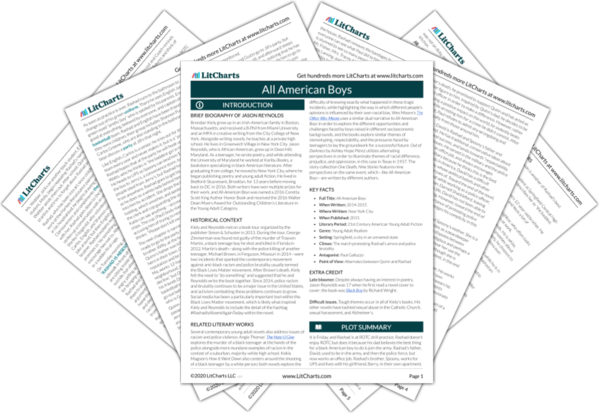Quinn cannot help but still center himself to some degree, even though he is clearly not victimized by racism. At the same time, it is significant that by taking a stand against racism, Quinn alienates himself from certain other white people. The novel suggests that one of the reasons why white people end up staying silent about racism is due to the social punishment they face from other white people if they do so.
